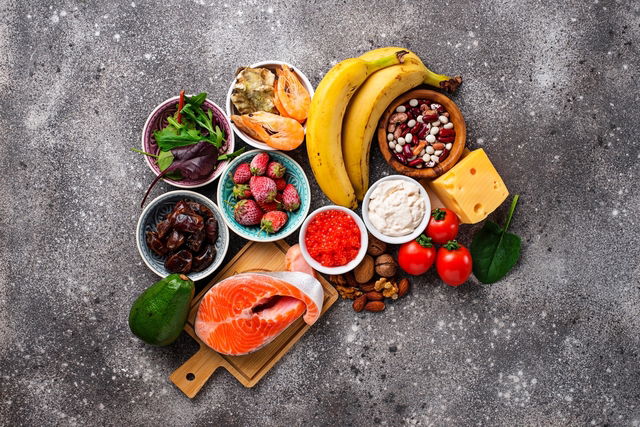Tryptophan is an amino acid that is necessary for the formation and maintenance of muscles. It is also needed for the production of serotonin and melatonin, which are compounds that act on the nervous system to regulate mood, sleep, memory and appetite. Tryptophan is often used for the treatment and prevention of depression, anxiety and insomnia, as well as for weight loss treatments.
It is often referred to as an essential amino acid, as the body is unable to produce it on its own. Therefore, tryptophan must be obtained from eating foods with this compound. Some food sources with tryptophan include dark chocolate, nuts, eggs and almonds.
Tryptophan can also be obtained through supplementation, such as 5HTP, or L-tryptophan, in capsule form. However, these supplements should only be taken as directed by a doctor or registered dietitian.

Health benefits
Tryptophan is an amino acid that takes part in many bodily functions. It can be beneficial for:
- Combating depression
- Forming and maintaining muscles
- Managing anxiety
- Promoting wellbeing
- Improving memory
- Reducing stress
- Regulating sleep
- Promoting weight loss
Tryptophan can also be used to help with pain management, attention deficits, hyperactivity, chronic fatigue and PMS.
The neurotransmitter serotonin helps with the formation of the melatonin hormone, which regulates the body's circadian rhythm. This hormone is important for promoting adequate sleep quality, as it is often produced at night.
Natural Sources
Some foods that are rich in tryptophan are:
- Cheese
- Eggs
- Tofu
- Salmon
- Walnuts
- Almonds
- Peanuts
- Brazilian nuts
- Bananas
In addition, tryptophan can also be found in supplement form, as 5-HTP, or L-triptofano, which are found in capsules. The recommended supplement dose is 100 mg to 3 g per day, depending on the treatment goals.
Can tryptophan promote weight loss?
Eating is often related to emotions and, therefore, periods of anxiety and depression can lead to overeating, particularly foods that are rich in carbohydrates and fats (like chocolate, ice cream, cakes and fried foods). This can lead to increased calorie intake and weight gain.
Tryptophan participates in the production of serotonin, a neurotransmitter that helps with the management of anxiety and depression. Taking tryptophan can help promote normal serotonin levels, which can reduce binge eating and lead to weight loss.
Recommended daily dose
The daily recommended dose of tryptophan varies depending on your age, gender and life phase. The following table outlines the amount of tryptophan you should ingest per day:
Pregnant women should ingest 7 mg per kilogram of weight per day. Breastfeeding women should aim for 9 mg per kilogram of weight per day.
